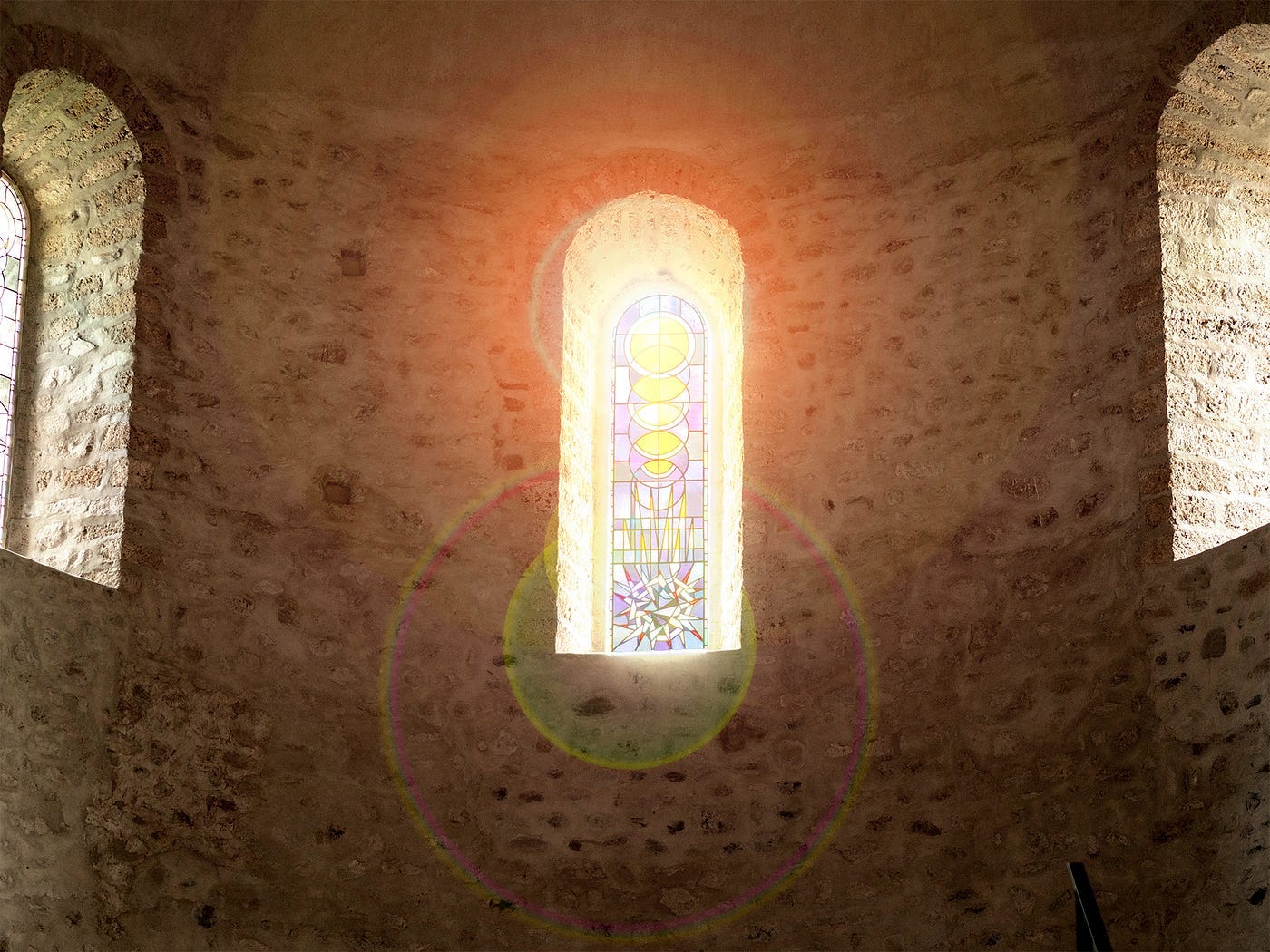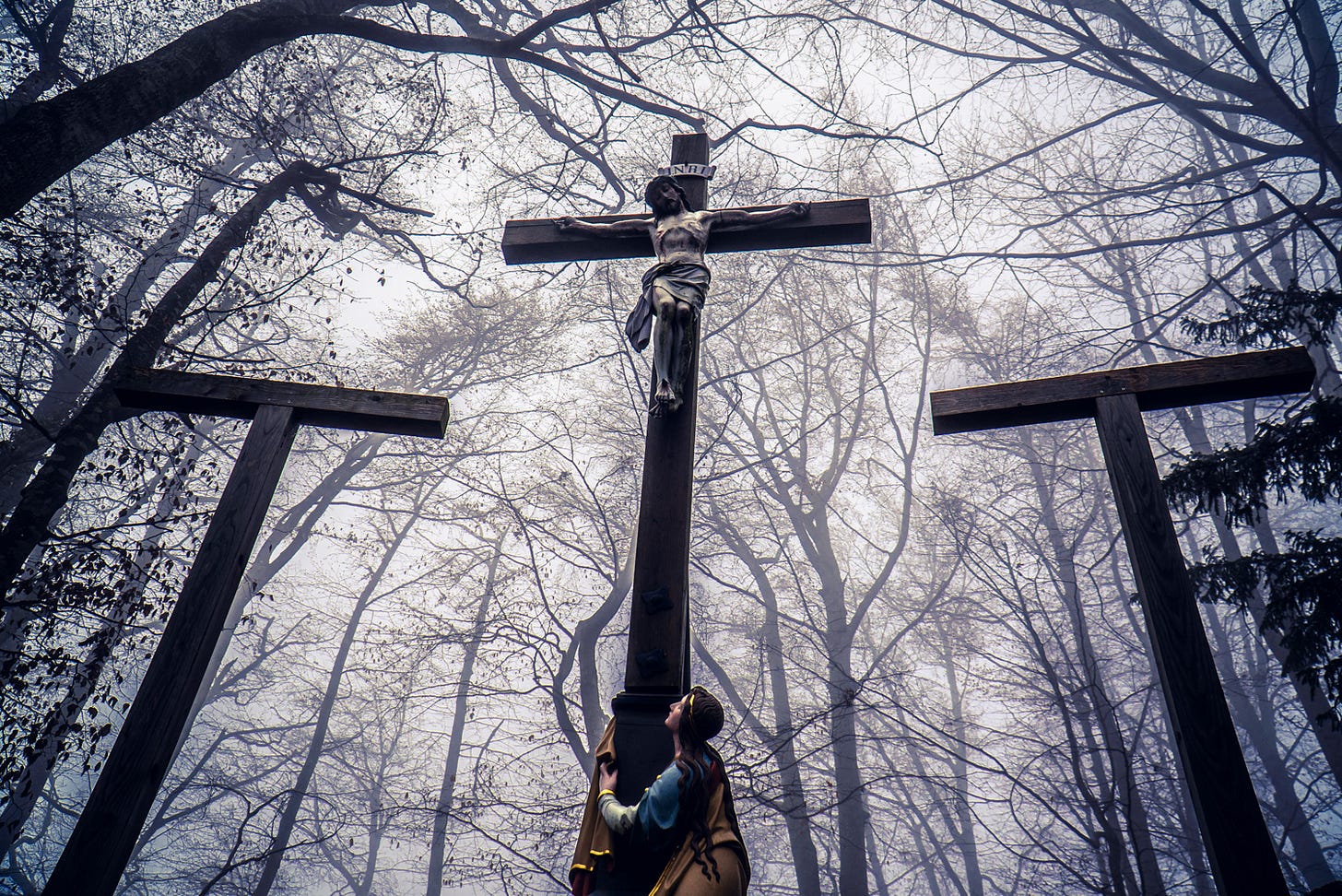A Human Christ & The Promise of Mystic Christianity
This Christian faith resolves prejudice and unites the world in Mystic Divinity
The movement of Mystical Christianity, a faith in Christ as an exceptional human being who arose to unification with the Godhead, aligns with all the world’s mystical traditions and Christian scripture.
Outwardly, I could not call myself a Christian as I have a deep affinity with the ideas and revelations of the world’s mystical traditions in Buddhism, Zen, Hinduism, and the Tao.
Yet inwardly, the most profound presence of affinity is in Christ.
Faith is unbounded, limitless, and accessible; I could not name it. Isn’t this how it should be?
My faith and journey with Christ is rooted in the experience of my youth.
The scripture on the miracles of Jesus was presented to me for the first time in a Floridian Baptist Sunday school amidst a backdrop of deep cultural divides of racism and segregation.
Stories of a benevolent, kind, patient, and loving man who sacrificed his life for the good of humanity stood in stark contrast to the persecution of human beings and the segregation I saw firsthand in my community.
Having just moved to Florida from Canada, I did not comprehend the reason behind the prejudice, racism, and persecution that ran deep in the cultural veins and divided the people in this southernmost State in the mid 70's
I feared people around me; I saw anger in men’s eyes and people hurting others with words and worse. I heard degrading calls and whispers from behind doors and windows.
I was not the target of these offensives, but I did not know that then. I also didn’t understand I was walking to school on the wrong side of the street.
What I saw and heard shocked my seven-year-old self, who never should have heard or seen those things.
So, I walked with Jesus to and from school every day.
Christ’s example through scripture presented in my Sunday School was so real to me, and he was so immediately present that I instinctively, innocently reached out and invited him in. Of course, he moved right in.
The only humorous element in all this was that my parents were not Christian at all; they were and still are atheists.
Meanwhile, I was becoming “religious”!
The church minister lived in the house that backed onto ours; his daughter was my best friend, and it was from her who invited me to attend their Sunday School and join the congregation.
And so began my relationship with Christ.
As I got older and moved away from Florida to California by the early 1980s, I was no longer involved with any church and was not involved with religious movements.
I took away from Flordia not only a found faith but also the understanding that division, in any form, but especially in beliefs or prejudices that separate people from one another, should not have any place in our unfolding stories.
Christ, for me, was always within and living, a powerful presence and forever outpouring love and acceptance.
It was not until my initiation by an occultist in my early 20s that I began to understand the more profound significance and importance of my devotion to the spirit of Christ, love, and life burning within me.
The Promise of Mystical Christianity
The same prejudices and beliefs that divide people along appearance and cultural lines also made their way into the way we see God.
This is our collective intellectual projection of bigotry and ignorance.
Indeed, the same Universal Divine Presence is named in different languages: Jehova, Allah, Vishnu, Shiva, Devi, Adoni, Father, and Lord, to note but a few of the thousands of names.
When I came across the teachings of Alan Watts and his presentation of Mystical Christianity, I recognized a portrait of Christ that was aligned with the one I held in my heart.
Unlike the doctrines of the churches of modern Christianity, where Christ was a singular, unique manifestation of God-made flesh on earth, Mystical Christianity aligns with the faiths and religions of the East, in that union with the Divine is attainable for every human being.
Rather than inferring separate divinities, which makes no spiritual sense, even the Ten Commandments are a testament to the unification of all nature and “gods” under one universal All-mighty.
Unifying what cannot be divided by dogma, Mystic Christianity aligns faith in Christ with all worlds Mystical traditions.
It opens one’s heart and builds devotion and hope in postulating that Christ was an illuminated, enlightened human being who attained the highest potential of a human, complete and absolute literal unification with Divinity, God.
In each culture, across time, many devoted human beings have achieved the greatest spiritual aspiration: union with the divine.
Like Christ, once they disappeared into union, they were one with the Father, Brahma, in Divine Marriage, Enlightenment, Nirvana, Fana, Moksha, Devekut, and many more words describing this profound state of being.
In the spirit of Mystical Christianity, anyone can follow Christ’s example to find union in the Godhead within, as Christ himself found union.
This has a different feel of a Christ, external to the self that one hopes will receive you into heaven upon death through good deeds. Always being unsure in life whether you have done what is needed.
This put the New Testament in a whole new light.
When read with this idea in mind, it becomes clear that Jesus was always speaking from the union, one with the Father.
As this was his reality, he could not perceive that those around him only had an intellectual understanding of his teachings; they were unrealized. So they pedestaled Christ as a different being, God made flesh, even as he was inviting them all to join with him in heaven (in the now) all the time!
Many devoted Christians have the intuitive knowledge of Christ living within their hearts; as Christ is one with the Father, so is the dedicated, day-by-day walking on the path aligning with the Godhead through his example and Christ’s living presence.
When the intellect comes around to this idea, beliefs are loosened.
Thoughts and sensations align with Christ’s love. The personal self loosens and begins to dissolve in this rapture.
Then the Divine fame of God pierces the heart of the devoted, as many a Saints in the west experienced being moved entirely to the devotion of the lord, only the lord remained, no individuated person remained.
This is in spirit the same as the Enlightenment of the East, and the mechanism of union is the same, through devotion and introspection of the self.
I am in my late fifties; my devotion to the Divine is driven by my love and dedication to Christ and by a knowledge of the energy through breath and Kundalini, symbolized as the lamp oil often mentioned in scripture.
Applying introspection and disbelief to anything not proven by my own experience. Applying awareness and my conscious self to look inward has brought my being face-to-face with the Divine burning within, leading me moment by moment to realize the true Eternal Nature of Being.
I am not saying my path is the right path for everyone, for everyone is the creator of their reality, and each must find their right path.
What does appear to be a universal truth is that the seeker must, at some point, seek within.
Suppose your idea of God is in the outside world. In this case, the perception of the Divine is always oriented outward, and the Divine connection is always sought through ideas, books, objects, relationships, etc.
Everything changes once the Divine is intuitively felt or experienced, revealing the spiritual flame burning within the self. Seeking becomes experiential, not intellectual, and then magic starts to unfold.







